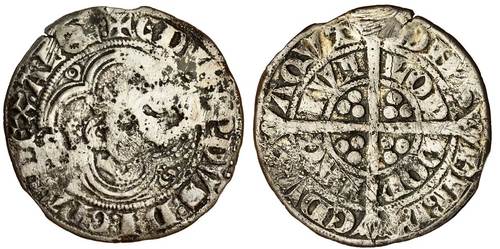
PREV ARTICLE
NEXT ARTICLE
FULL ISSUE
PREV FULL ISSUE
NOTES FROM E-SYLUM READERS: JUNE 26, 2016The Ends of Monetary Unions
For years we've tried to get some support to work on the question of Monetary Unions in history, especially the ends of the monetary unions. Each time we were told that Europe and the Euro were definitive and all the applications were refused. Now we see the results of this blindness. It is time to read what we published on history of Monetary Unions.
Indeed. As the saying goes, those who cannot remember the past are doomed to repeat it. The Moneta publications are a great resource on
this important economic and political topic. -Editor
To read about the EMU project, see:
For more information on Moneta publications, see:
David Pickup writes: I am not sure about Georges says. We are exiting the EU not the monetary union. We were not in the EMU. The Royal Mint issued commemorative 50 pence pieces in 1973 for the accession to the EEC as it was, then 1992-1993 to commemorate the Presidency of the European Community Ministers and completion of the single market, and finally in 1998 to mark the 25th anniversary of membership of the EU. Now that we have Brexit I wonder if the Royal Mint will issue a coin to mark this and if so what design would they use?
David is correct - Britain never gave up the Pound in favor of the Euro, but did join the EU. Political unions can suffer many of the
same problems as monetary unions, though. On this side of the ocean our own Articles of Confederation failed and were replaced with the
current Constitution and later Amendments. This didn't prevent our Civil War in the 1860s but otherwise managed to unify a disparate
set of individual states. Hopefully a path forward can be found for the EU someday. -Editor
Hall of Fame Corrections
One hesitates to correct Dick Johnson on a medal-related matter but in reference to his note on The Hall of Fame for Great Americans,the colonnade is located on University Heights, not Morningside Heights, and the river it overlooks is the Harlem, not the Hudson. Ken Berger writes: The write up about the Hall of Fame Medals contains two errors. It states that "In the 1980s New York University sold their Morningside Campus to City College of New York" (CCNY). This is incorrect. First, NYU sold the campus to the City University of New York (CUNY) and it became the new campus of the Bronx Community College (BCC). City College of New York, on the other hand, is just one of many parts of CUNY. Second, NYU sold the campus in 1973, not in the 1980s. I know these facts because: 1) I was a student at the NYU Heights campus when it was sold, 2) I took courses at CCNY in 1973, and 3) I worked at BCC after it took over the NYU campus.
Those references were in the 1999 Presidential lot description that Dick wrote many years ago, and I included it in the last issue
without rechecking with him or Joe Levine.
Say what you will about the internet, but fact-checking is so much easier now than it was even then when online content was a new phenomenon. The auction catalog is an historical record and won't be changed, but the corrections are duly noted. Perhaps are future enhancement for the Newman Numismatic Portal will allow for annotations to update outdated or incorrect text. -Editor To read the earlier E-Sylum article, see:
An Abysmal Specimen
The frank description of this rare Edward I groat from Spinks 28th June sale The Academic Collection of Lord Stewartby: English Coins part 2, Coins of Henry II to Edward II, is interesting and unusual. It might be worth publishing as “one of the worst graded coins to be auctioned” or something similar. 
Edward I (1279-1307), New Coinage, Groat, London, 5.04g, variety a, +EDWARDVS:DI:GRA:REX:ANGL. a flat crown with pellet ornaments, small face with short hair, quatrefoil of three lines, drapery of two wedges with rosette below, colon stops, rev. :DNS HIBN’E DVX AQVT - LONDONIA CIVI, long cross, pellets in angles (N.1007; S.1379A; Fox 5, Stewartby p.170 var.a), poor to fair, the description best taken from Lord Stewartby’s own ticket as follows: ‘Very rare denomination for this reign. In the worst possible condition, worn, cracked, scratched, gilt, has been mounted and in a fire - an abysmal specimen.’ A note that it is also plugged was subsequently added. £400-500 PROVENANCE:
I've seen worse coins - at least it's intact and unbent. But but this is certainly a frank description. Hopefully the coin will
find a good new home regardless. -Editor
To read the earlier E-Sylum article, see:

Wayne Homren, Editor The Numismatic Bibliomania Society is a non-profit organization promoting numismatic literature. See our web site at coinbooks.org. To submit items for publication in The E-Sylum, write to the Editor at this address: whomren@gmail.com To subscribe go to: https://my.binhost.com/lists/listinfo/esylum All Rights Reserved. NBS Home Page Contact the NBS webmaster 
|